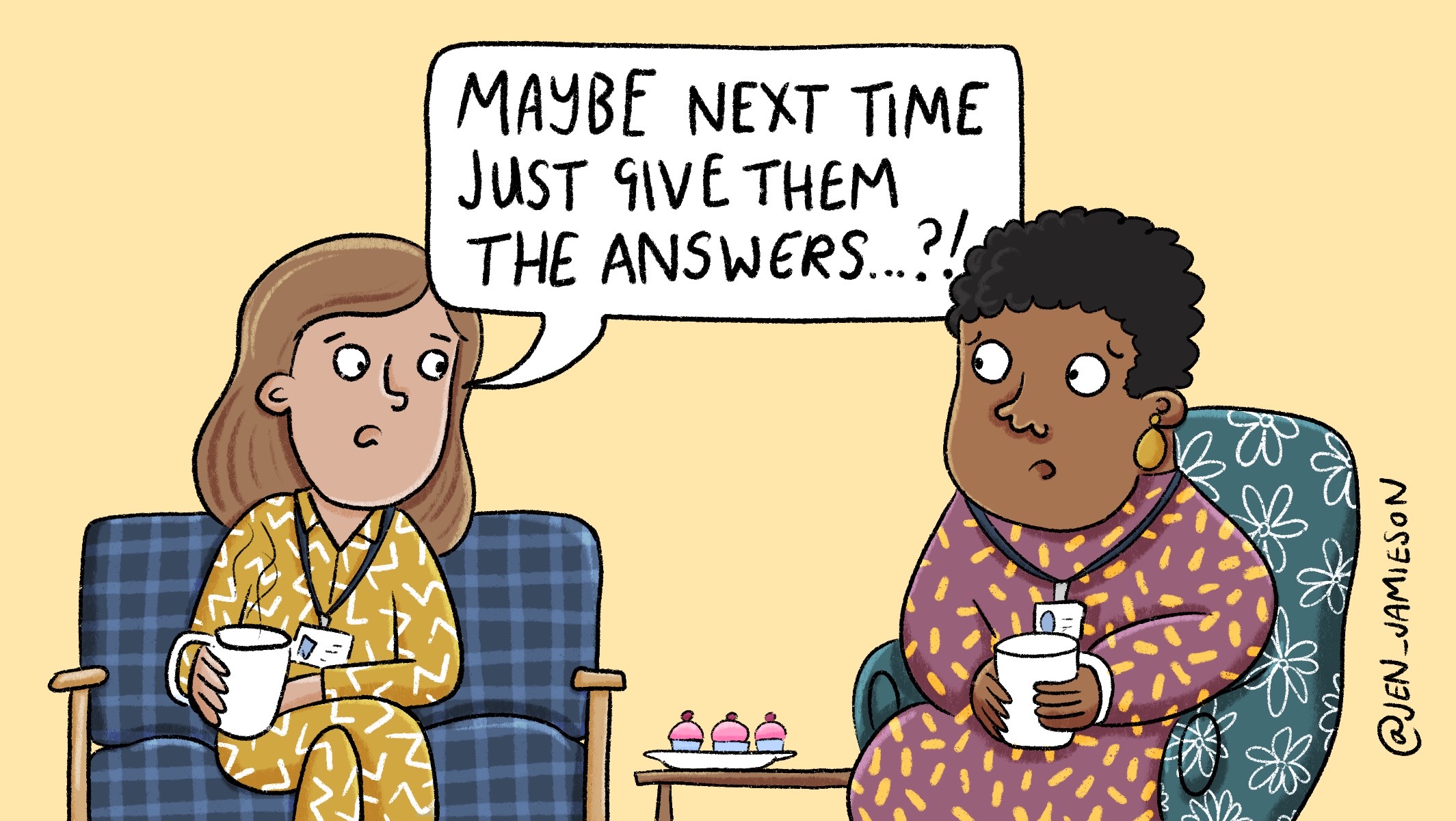
Dear We Are Teachers,
I’m in my 17th year teaching 6th grade English. I have used the same curriculum (tests, quizzes, and resources I’ve created) for years, and I’ve never had so many students failing. Even my pre-AP students are struggling. In an effort to get their grades up, I allowed all my classes to take their midterm open-book with any notes they wanted, and the class average was still a 67. My coworkers are seeing the same thing. What should we do?
—what is happening?
Dear W.I.H.,
Excuse me while I break out in hives from sympathy.
Let me just validate you for a moment: This is a huge issue. And it’s not just you. It’s reflected in the fact that we have the least college-ready generation headed to universities in the fall, plus what we’re hearing from college professors. Kids are lacking basic skills—including studying.
Honestly, I think this is an all-hands-on-deck situation, not something that’s yours to manage as a Second Mate (how obvious is it that I just Googled “maritime hierarchy”?). This requires evaluation of school policies at the highest level.
When you talk to your administration about this, don’t come empty-handed. Bring data, your documentation of interventions, anything you can to prevent your concerns from sounding like “kids these days!”-type finger-wagging. You want to communicate that you want to be a partner in addressing a serious problem, not someone trying to simply unload a problem they’ve identified.
Dear We Are Teachers,
I saw a post on Helpline today and realized I have nearly the exact same situation in my class: a middle schooler (mine is in 6th grade) who constantly passes gas loudly and then revels in disrupting the class. Laughing, joking, re-enacting, etc. When I called home about it, the mom scolded me for reprimanding him, saying it’s involuntary and that I’m punishing a child for a bodily function that is normalized in their home. I was so shocked initially, but now she has me wondering if I could be in the wrong. What would you do?
—Am I the (G)as-hole?
Dear A.I.T.G.,
The issue is not that this kid is farting—the issue is that he’s actively creating disruption around it. He might not be able to control his gas, but he can definitely control whether he turns it into a stand-up routine.
If it continues, get an AP involved. (Ideally, the AP would say, “Clearly this is a medical issue that significantly disrupts your child’s academic life. I would recommend getting a 504 via your doctor’s diagnosis.”) Your AP might decide to take the situation on themselves, but if they don’t, arrange a meeting with mom and your AP. You can communicate the following:
“You’ve expressed that passing gas is a normal bodily function, and we totally agree. The issue is not that he’s passing gas, it’s the behavior accompanying it. The laughing and joking isn’t involuntary and is a significant disruption to the learning of other students, especially considering the frequency with which it happens. Here are some ideas we have for minimizing disruptions in the future.”
I mean, could it be the case that he can’t control it and is using humor to cope? Sure. But this response protects you in either case.
Dear We Are Teachers,
OK, I’m dealing with a unique situation. I have a group of 9th grade girls in my homeroom that get a kick out of comparing me and other students in our homeroom to notably unfavorable-looking celebrities. When I’ve asked them to stop, they insist that it’s never an insult and even turn it around on me, asking “Why? They both have black hair and big eyes—why is it mean to say they look alike?” I know they’re trying to goad me into saying these well-known comparisons are conventionally unattractive, but I don’t know how to make them stop.
—HONESTLY, I DO KIND OF LOOK LIKE THAT ONE SENATOR
Dear H.I.D.K.O.L.L.T.O.S.,
There are worse things to look like than a senator, but why are teenage girls so mean? And so correct?
Gather this little crew after homeroom one day and say this:
“Listen. I know you love your celebrity-comparison game. Some of them are pretty spot-on! But part of my job as a teacher is preparing you to be adults who are going to thrive in relationships and workplaces. And in modern relationships and workplaces, commenting on others’ physical appearances—no matter your intentions—can be considered harassment. I know none of you mean it that way, but I would hate for a record of your harassment to limit future opportunities for you. Can we agree to have that behavior stop here so I don’t have to notify anyone else?”
With this, you’ve communicated:
- You believe they’re good people. Even if you are fully confident they have a Burn Book on the premises, it’s important that you communicate you don’t think they’re bad people.
- You’re willing to give them grace.
- If it continues, you will have to notify someone else—and it’s not for a silly little slap on the wrist.
If they keep it up after this, tell their ringleader she looks like Finkelstein, the mad scientist in Nightmare Before Christmas.
I’m just kidding. Please don’t do that.
Do you have a burning question? Email us at askweareteachers@weareteachers.com.
Dear We Are Teachers,
It’s my second year teaching 7th grade, which means my second year dealing with middle school boys’ antics. Last year it was moaning. This year it’s boys slapping their thighs together under the desk. I’ve told them to stop. I’ve told them the noises are inappropriate. Teachers at my school have essentially been told that all behavior issues are our (the teachers’) problem to deal with. This is gross and makes me feel uncomfortable. What am I supposed to do?